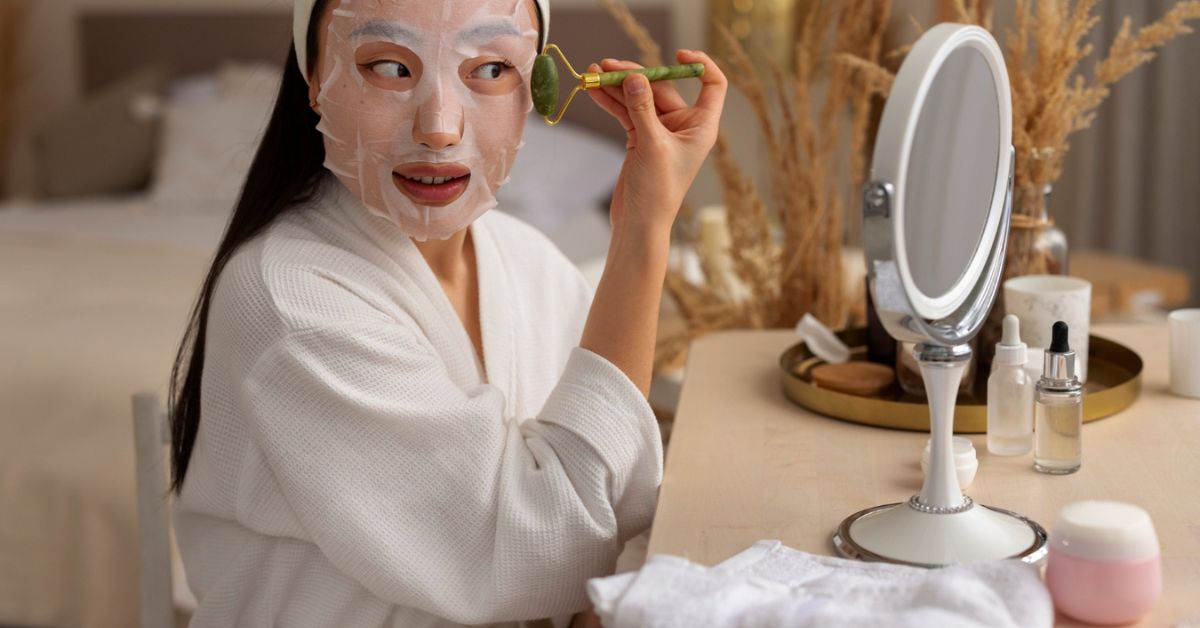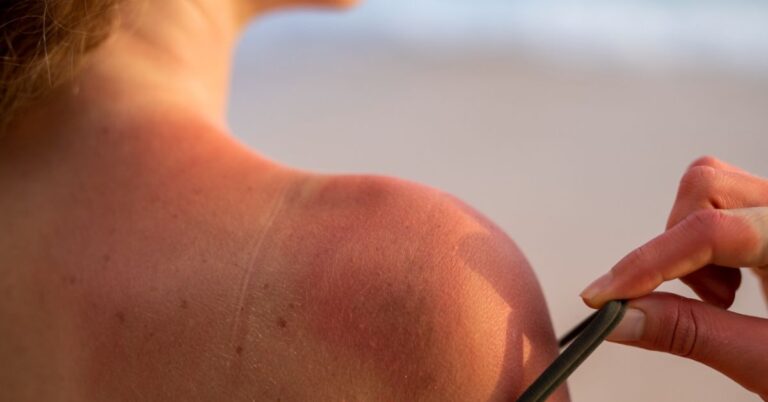We often underestimate the power of a good night’s sleep when it comes to maintaining youthful, radiant skin. While we’re catching those essential Z’s, our body goes into repair mode, working diligently to regenerate cells and restore our skin’s vitality. However, the way we sleep can either support this natural process or inadvertently contribute to the formation of wrinkles. In this comprehensive guide, we’ll explore various strategies to help you wake up with smoother, more youthful-looking skin.
The Importance of Sleep Position
The position in which you sleep plays a crucial role in wrinkle prevention. Back sleeping is widely considered the best position for maintaining smooth skin. When you sleep on your back, your face isn’t pressed against a pillow, which can create creases and lines that, over time, can become permanent wrinkles. Back sleeping also helps prevent fluid accumulation under the eyes, reducing puffiness and dark circles.
However, we understand that not everyone can comfortably sleep on their back. If you’re a side or stomach sleeper, don’t despair! There are ways to mitigate the effects of these sleep positions on your skin. For side sleepers, try using a specially designed pillow that supports your neck while minimizing contact with your face. Stomach sleepers might benefit from a very soft, flat pillow to reduce pressure on the face. Regardless of your preferred position, make an effort to change positions throughout the night to distribute pressure evenly and minimize prolonged creasing in any one area.
The Magic of the Right Pillowcase
Your pillowcase can be a secret weapon in your anti-aging arsenal. Silk and satin pillowcases have gained popularity in recent years, and for good reason. These smooth fabrics create less friction against your skin compared to traditional cotton pillowcases. Less friction means less tugging and pulling on delicate facial skin, which can lead to wrinkles over time.
Moreover, silk and satin are less absorbent than cotton, which means they won’t wick away your skin’s natural oils or any beneficial night creams you’ve applied. This helps your skin retain moisture throughout the night, keeping it plump and hydrated. The smooth surface of these fabrics also helps prevent sleep creases, those temporary lines you might notice on your face when you wake up. While these lines typically fade within a few hours, repeatedly sleeping on a rougher surface can lead to these temporary creases becoming permanent over time.
Creating the Ideal Sleep Environment
The environment in which you sleep can significantly impact your skin’s health. One often overlooked factor is humidity. The ideal humidity level for skin health is between 40% and 60%. In this range, your skin can maintain its natural moisture balance without becoming too dry or too oily.
Dry air can lead to moisture loss from your skin, causing it to become dehydrated, which exacerbates the appearance of fine lines and wrinkles. On the other hand, excessive humidity can lead to increased sweating and potential skin irritation. If you live in a dry climate or use air conditioning regularly, consider investing in a humidifier for your bedroom. This can help maintain optimal humidity levels, ensuring your skin stays hydrated throughout the night.
Perfecting Your Night-time Skincare Routine
A solid night-time skincare routine is crucial for preventing wrinkles while you sleep. Start with a gentle, thorough cleansing to remove all traces of makeup, dirt, and pollutants accumulated throughout the day. Leaving these on your skin overnight can lead to oxidative stress, which accelerates the aging process.
After cleansing, it’s time to nourish your skin with targeted treatments. Night creams and serums are typically more concentrated and heavier than their daytime counterparts, as they’re designed to work with your skin’s natural nighttime regeneration process. Look for products containing ingredients like retinoids, which stimulate collagen production; hyaluronic acid, which helps retain moisture; and peptides, which can help firm the skin.
Don’t forget your eye area! The skin around your eyes is particularly delicate and prone to showing signs of aging. Use a specialized eye cream to address concerns like fine lines, puffiness, and dark circles. Apply your eye cream gently, using your ring finger to pat (not rub) the product around your orbital bone.
Hydration: Your Skin’s Best Friend
Proper hydration is essential for maintaining plump, youthful-looking skin. While it’s important to drink water throughout the day, be mindful of your fluid intake close to bedtime. Drinking too much water right before bed can lead to disrupted sleep due to night-time bathroom trips. Instead, focus on consistent hydration throughout the day and perhaps have a small glass of water with your evening skincare routine.
In addition to internal hydration, consider using a hydrating overnight mask once or twice a week. These intensive treatments work while you sleep to deeply moisturize and nourish your skin. Look for masks containing ingredients like hyaluronic acid, glycerin, or ceramides, which help to lock in moisture and strengthen your skin’s natural barrier.
Stress Management for Better Sleep and Skin
Stress can wreak havoc on both your sleep quality and your skin. When you’re stressed, your body produces more cortisol, often referred to as the stress hormone. Elevated cortisol levels can break down collagen, the protein responsible for keeping your skin plump and smooth. Moreover, stress often leads to poor sleep, which in turn affects your skin’s ability to repair and regenerate overnight.
Implement stress-reduction techniques as part of your bedtime routine. This could include practices like meditation, deep breathing exercises, gentle yoga, or journaling. Not only will these activities help you relax and prepare for better sleep, but they’ll also contribute to a more youthful complexion by reducing the negative effects of stress on your skin.
Harnessing the Power of Overnight Treatments
Night-time is the perfect opportunity to use more potent skincare treatments that might be too strong or sun-sensitive for daytime use. Retinoids, derived from Vitamin A, are particularly effective when used at night. They work by increasing cell turnover and stimulating collagen production, which can significantly reduce the appearance of fine lines and wrinkles over time.
If you’re new to retinoids, start slowly to allow your skin to acclimate. Begin by using a low concentration product once or twice a week, gradually increasing frequency as your skin tolerates it. Always follow up with a moisturizer to combat any potential dryness or irritation.
Another powerful overnight treatment option is a hydrating mask or sleeping pack. These products are designed to form a protective layer over your skin, preventing moisture loss and allowing active ingredients to penetrate more deeply. Look for products containing ingredients like niacinamide, which can help improve skin elasticity, or antioxidants like Vitamin C or E, which protect against free radical damage.
The Crucial Role of Quality Sleep
While all these strategies can help prevent wrinkles, perhaps the most important factor is getting enough quality sleep. During deep sleep stages, your body increases production of growth hormones, which are essential for cell and tissue repair. This is when your skin does most of its regenerating, producing new collagen and elastin to keep your skin firm and elastic.
Aim for 7-9 hours of sleep per night, and try to maintain a consistent sleep schedule. Your body thrives on routine, and a regular sleep-wake cycle can improve both the quality of your sleep and the health of your skin. Create a relaxing bedtime routine to signal to your body that it’s time to wind down. This might include dimming lights, avoiding electronic devices (which emit blue light that can disrupt your sleep cycle), and engaging in calming activities like reading or light stretching.
Conclusion: Consistency is Key
Preventing wrinkles while you sleep is not about finding a single miracle solution, but rather about adopting a holistic approach to nighttime skincare and sleep habits. From choosing the right pillowcase and optimizing your sleep environment to perfecting your evening skincare routine and managing stress, each element plays a crucial role in maintaining youthful, radiant skin.
Remember, the key to seeing results is consistency. Your skin renews itself approximately every 28 days, so give any new routine at least a month before expecting to see significant changes. Be patient with your skin, and don’t forget that a good night’s sleep is about more than just beauty – it’s essential for your overall health and well-being.
By implementing these strategies and making quality sleep a priority, you’re not just preventing wrinkles – you’re investing in your skin’s long-term health and radiance. Sweet dreams and smoother skin await!




